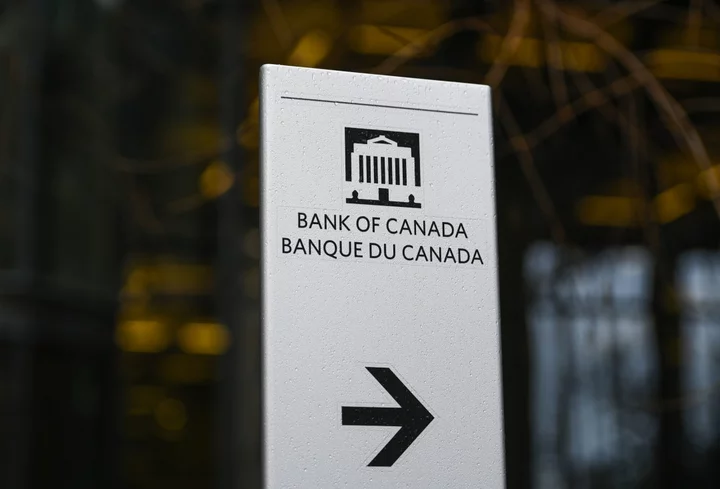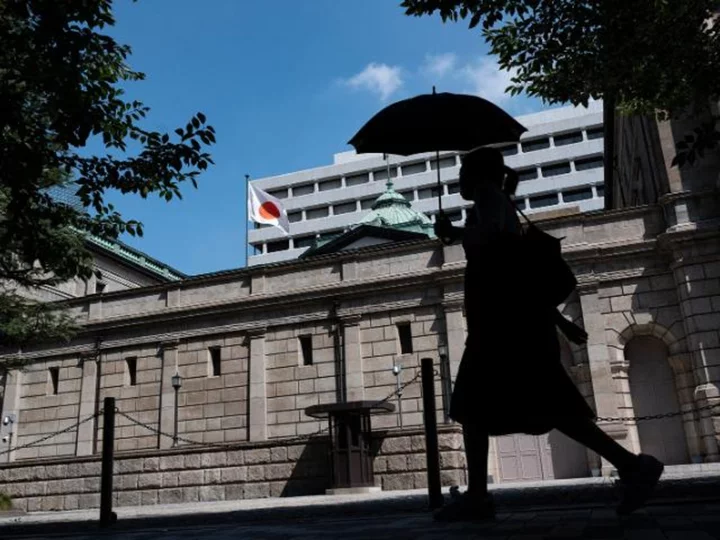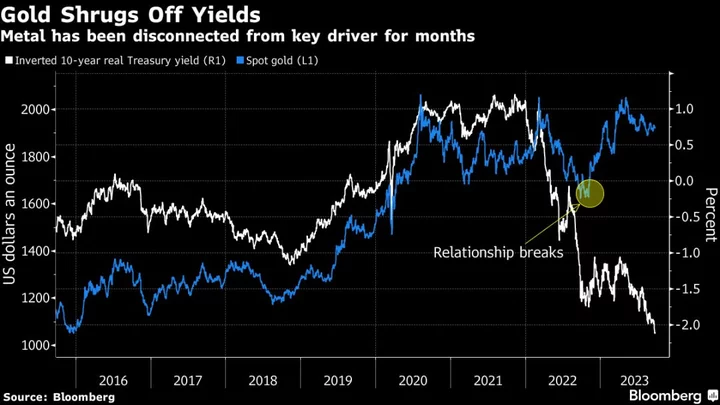Sentiment among businesses fell to its weakest level since the depths of the pandemic, but inflation expectations of both firms and consumers remain high, Bank of Canada surveys show.
The central bank’s business outlook indicator fell to minus 2.2 in the second quarter from minus 1.1 previously. A greater number of companies now think it will take five years or more for the rate of inflation to drop to around 2%, saying they see price gains being supported by high government spending and strong demand.
But a separate consumer survey showed that some households are starting to think the worst is behind them, despite concerns about the rising cost of living and mortgage renewal amid elevated interest rates.
Together, the surveys show households and businesses are holding up better than expected in the face of the Bank of Canada’s aggressive interest rate increases. Coupled with brighter economic data, they may add to evidence that borrowing costs aren’t yet restrictive enough.
“The slow progress in lowering inflation expectations coupled with the rebound in consumer confidence suggests that the Bank of Canada has more work to do,” Royce Mendes, head of macro strategy at Desjardins Securities, said in a report to investors.
Gross domestic product figures released Friday also showed a rebound in the economy in May after it stalled in April. That leaves Canada’s economy on track for around 1.4% annualized growth in the second quarter, higher than most economists’ estimates. Traders slightly pared their bets for another interest rate hike at the Bank’s July 12 meeting, with odds now sitting around 60%.
Strong Demand
The bank’s survey showed many domestic demand indicators up slightly from a year ago. That’s due in part to lower perceived uncertainty about the future path of interest rates, fewer concerns about a recession, improved supply chains and upcoming large capital projects.
Some firms are still planning to make larger and more frequent price increases in the coming year. They said they haven’t yet finished passing through the cost increases they experienced during the pandemic. “Businesses have not yet returned to their pre-pandemic price-setting behaviour,” policymakers said.
Although shortages of workers remain common in sectors such as manufacturing, construction and retail trade, overall pressures on the job market are easing due to decreased competition for employees and increased labor supply.
Wages, Home Prices
Some firms expect wage growth to moderate from high levels, with most expecting average annual gains of 4.5% over the next year — a level the bank flagged as “well above normal.” For consumers, wage expectations remain near survey highs.
Workers are increasingly confident about their own employment situation, and their perceived likelihood of losing a job has fallen back to pre-pandemic levels.
Consumers also think interest rates will drop within the next 12 months from where they were during the survey period in May. That expectation for lower borrowing costs, coupled with strong immigration which boosts housing demand, is also leading Canadian consumers to believe that house prices will increase over the next year.
Governor Tiff Macklem raised borrowing costs to 4.75% in a surprise move on June 7, ending the bank’s pause. Many economists expect another hike in coming months.
--With assistance from Danielle Bochove.
(Updates with economist comment, additional information on GDP report)
Author: Randy Thanthong-Knight and Erik Hertzberg









